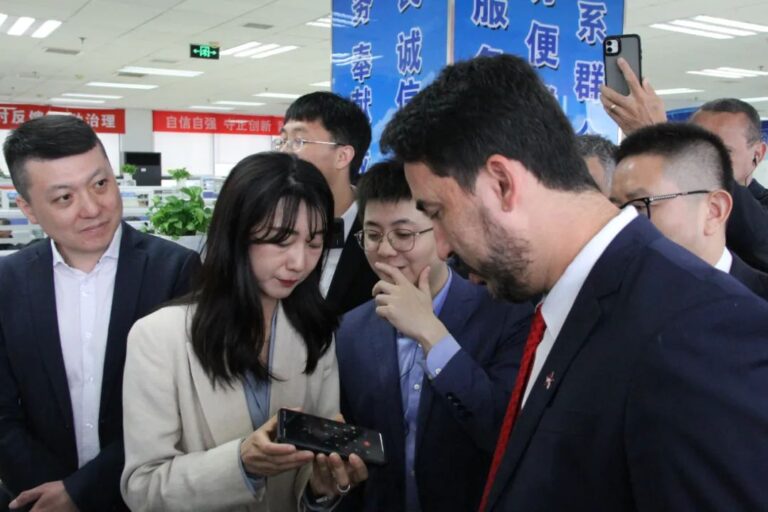Beijing’s public service hotline has become a model of people-centered governance, offering residents an effective way to solve daily problems while strengthening trust between citizens and local authorities.
The hotline, available to all residents, allows individuals to report concerns, request services, and seek guidance on a wide range of issues. From housing and healthcare to transportation and community services, the system is designed to connect people directly with government departments for faster and more transparent solutions.
Officials say the hotline is not just a tool for problem-solving but a bridge that enhances the relationship between the government and the public. By focusing on responsiveness, accountability, and efficiency, Beijing has positioned the service as a key part of its broader commitment to people-centered governance.
“The hotline represents our promise to put residents at the heart of decision-making,” said a city official. “Every call matters, and every case is handled with urgency and care.”
The hotline operates 24 hours a day, providing residents with accessible support whenever needed. Calls are logged into a central system, where trained staff assess the issue and transfer it to the relevant department. Response times are closely monitored to ensure that citizens receive timely assistance.
Recent data shows that the majority of cases are resolved within days, with many addressed within hours. Common requests include fixing public utilities, clarifying social services, and addressing neighborhood disputes. The system has also played an important role in emergency response, including during severe weather events.
Residents say the hotline has improved their sense of connection with city management. “I called about a broken streetlight, and it was fixed within 24 hours,” said one Beijing resident. “It feels like the government is listening to us.”
The hotline has also adapted to digital platforms, allowing citizens to file requests online or through mobile apps. This integration makes the service more accessible to younger generations who prefer digital communication.
Experts point out that the system reflects a broader trend in modern governance: the move toward more participatory, responsive, and transparent models of public service. By making it easy for people to communicate their concerns, governments can strengthen trust and create a stronger sense of community.
Beijing’s hotline has been praised as an example for other cities in China and beyond. Officials from different regions have visited to learn how the system works and how it could be adapted to their own local needs.
The success of the hotline is also measured in public satisfaction. Surveys show that residents appreciate the efficiency, professionalism, and accountability of the service. Many note that their issues are resolved more quickly than in the past, when contacting government offices could be slow and complicated.
Challenges remain, including the need to manage a high volume of calls and ensure that departments follow up consistently. However, authorities stress that continuous improvement is part of the hotline’s mission. Regular feedback is collected to refine processes and address areas where service can be enhanced.
The initiative highlights the value of people-centered governance, where public services are designed around the needs of citizens rather than bureaucratic convenience. It reflects a philosophy that government should be accessible, transparent, and directly accountable to the public it serves.
Observers believe the hotline could help shape the future of urban governance in China. By empowering residents, streamlining services, and promoting responsiveness, the model offers a blueprint for how cities can adapt to the needs of growing and diverse populations.
As Beijing continues to modernize its governance systems, the hotline stands out as a powerful example of how technology and public service can combine to improve daily life. For residents, it represents more than a phone call—it is a promise that their voices matter.


